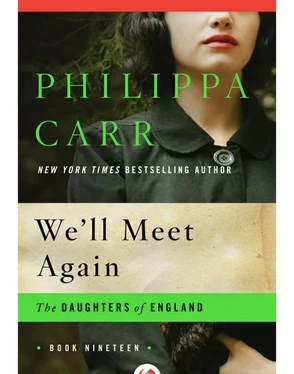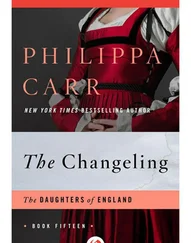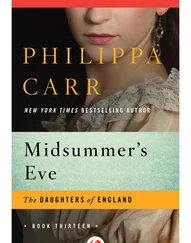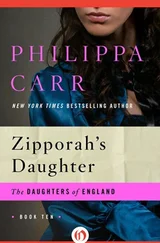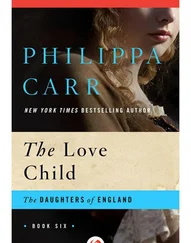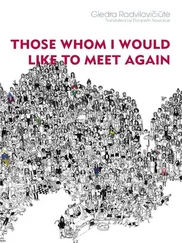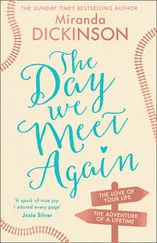Philippa Carr - We'll meet again
Здесь есть возможность читать онлайн «Philippa Carr - We'll meet again» весь текст электронной книги совершенно бесплатно (целиком полную версию без сокращений). В некоторых случаях можно слушать аудио, скачать через торрент в формате fb2 и присутствует краткое содержание. Жанр: Исторические любовные романы, на английском языке. Описание произведения, (предисловие) а так же отзывы посетителей доступны на портале библиотеки ЛибКат.
- Название:We'll meet again
- Автор:
- Жанр:
- Год:неизвестен
- ISBN:нет данных
- Рейтинг книги:5 / 5. Голосов: 1
-
Избранное:Добавить в избранное
- Отзывы:
-
Ваша оценка:
- 100
- 1
- 2
- 3
- 4
- 5
We'll meet again: краткое содержание, описание и аннотация
Предлагаем к чтению аннотацию, описание, краткое содержание или предисловие (зависит от того, что написал сам автор книги «We'll meet again»). Если вы не нашли необходимую информацию о книге — напишите в комментариях, мы постараемся отыскать её.
We'll meet again — читать онлайн бесплатно полную книгу (весь текст) целиком
Ниже представлен текст книги, разбитый по страницам. Система сохранения места последней прочитанной страницы, позволяет с удобством читать онлайн бесплатно книгу «We'll meet again», без необходимости каждый раз заново искать на чём Вы остановились. Поставьте закладку, и сможете в любой момент перейти на страницу, на которой закончили чтение.
Интервал:
Закладка:
Talk it over with Dorabella. I do hope you will have her.
I was sorry, and so was your father, that we could not be there for the engagement party. We are so happy about it. Both of us are so fond of Jowan. Your father thinks he is an excellent manager and we both know that you and he will be very happy together. It will be so nice for you to be near Dorabella.
With lots of love from Daddy and me,
Mummy
Dorabella looked up from her letter.
“Gretchen,” she said.
I nodded.
“Of course she must come,” she said.
“Of course,” I echoed.
Gretchen arrived about two weeks later. Dorabella drove to the station to meet her and I went with her.
I could see that Gretchen was a little distraught. She was as anxious for Edward as I was for Jowan, and neither of us could get any news of what was happening on the Front. Moreover, she had the additional anxiety of her family in Bavaria, of whom she had heard nothing for a very long time.
Little Hildegarde was an enchanting child. Tristan would be three years old in November and Hildegarde was about five months younger. She was an only child, dark like her mother and with none of Edward’s fairness.
Nanny Crabtree pounced on her with glee, and, as for Tristan, he was obviously glad to have her company.
Nanny Crabtree was at this time in a state of mild rebellion because of what she referred to as “them imps upstairs.”
Because it was feared that the enemy would attack from the air, children throughout the country had been evacuated from the big towns and billeted in country houses. Two of these children had been assigned to us, and they were Nanny Crabtree’s “imps.”
Above the nursery were the attics, some of which were occupied by servants. They were large rambling rooms, oddly shaped with sloping roofs. Two of these were used as bedrooms for the young evacuees, who were two brothers from London’s East End, Charley and Bert Trimmell, aged eleven and eight. Nanny Crabtree kept an eye on them, supervising their meals, making sure that they washed regularly and went to school in East Poldown with the others who had been billeted in the Poldowns or the surrounding neighborhood. As the school in Poldown was not big enough to accommodate all the children, some rooms in the town hall had been given over to the schoolmasters and -mistresses who had accompanied their pupils; and all the newcomers could go to school with their friends.
We were sorry for these children, who looked very forlorn when they arrived with labels bearing their names and gas masks over their shoulders.
Gordon had gone down to the town hall where they were all assembled and came back with the Trimmells.
Nanny Crabtree’s rebellion was only on the surface. Where children were concerned, she would be the first to care for them; but she always disliked change, so it was only a natural reaction.
“Poor little mites,” she said of the evacuees. “It’s no picnic for them being taken away from their homes. Still, they’ve got to learn the way we do things here and the sooner the better. I could murder that Hitler.”
When Charley came home with bruises on his face and a torn jacket, she was most displeased—particularly when he stubbornly refused to tell her how he had come to be in such a state.
“We don’t have that sort of goings-on down here, you know. You have to behave. You’re not in the back streets now.”
Charley remained silent, giving her that look of veiled contempt which she had seen before and was the easiest way to irritate Nanny Crabtree because she could not complain of insolence when the boy had said nothing.
She told me about it afterwards.
“‘Charley Trimmell,’ I said, ‘you’ll have to learn, that’s what you’ll have to do.’ And there he stood, defying me … without raying a word.”
“It must be dreadful for those children,” I said. “Just imagine, being taken away from your home and family and sent to strangers.”
Nanny nodded. “Poor mites, but they’ve got to learn life’s not all beer and skittles.”
I think she was rather contrite when she heard the way in which Charley had acquired his scars.
She heard it through Bert, with whom it was easier to communicate. He told her how the boys in East Poldown had set on him, teasing him. They were going to throw him into the river because he couldn’t swim like they could, and he talked in a funny way. They were all round Bert, who shouted for his brother, and then Charley appeared—stalwart Charley—who dashed into the crowd of jeering boys and, according to Bert, gave them such a going-over that they all ran away, but only after inflicting some battle scars on the noble defender.
“Why didn’t he tell me what it was all about,” demanded Nanny Crabtree, “instead of just giving me that look of his?”
“Children don’t always act reasonably,” I said.
After that there was a truce between Nanny and Charley. No. There was more than that. They were both Londoners; they shared a knowledge of the metropolis, and that special shrewdness and the unshakable belief that, because they were citizens of the greatest city in the world, they could only feel a certain pity for those who did not share that privilege.
In due course, Charley talked to Nanny about his home. He would sit in her room with his brother Bert, for Bert never liked to be far away from Charley, and Nanny discovered that the boys’ father was at sea. He had been a sailor before the war and had been away from home most of the time, a fact which had given the boys little cause for regret; their mother worked as a barmaid and, as she was out late at night, Charley had to look after Bert.
“They’re not a bad pair,” said Nanny. “There’s a lot of good in Charley, and of course Bert thinks the sun, moon, and stars shine out of his eyes. I’m not sorry we got them two. Could have done a lot worse.”
So, with Tristan and Hildegarde in the main nursery and the Trimmells in their attic rooms above, Nanny Crabtree, as she said, “had her work cut out,” and we all knew that her occasional murmurings against her lot were not to be taken seriously.
Meanwhile, the weeks were passing. The campaign in Norway was not going well and there was no news of Jowan. One day was very like another. Dorabella, Gretchen, and I would take the children onto the beach and watch them building sandcastles. They liked to build close to the water and watch the incoming tide make moats in the channels round the edge of the piles of sand. It was pleasant to hear their shrieks of laughter.
When we went into Poldown the streets seemed crowded. We had a much greater population now. It was amusing to hear the mingling of the Cockney and Cornish accents. At first the children had some difficulty in understanding each other, but the original antagonism and suspicion of strangers, I fancied, had disappeared to some extent.
There was change and I often thought of the days when I had first come here before Dorabella’s marriage, how quaint it had all seemed, and how my mother and I had laughed at the old Cornish superstitions. Then there had been my meeting with Jowan … I always came back to Jowan.
Sometimes Dorabella did not come to the beach and Gretchen and I would take the children. We could talk to each other freely. There was no need to hide our fears because we shared them.
Often I would catch her looking across the sea with that look of sadness in her eyes. Gretchen had suffered so much in her life that she expected disaster. It had been different with me. I had been brought up by doting parents in an atmosphere of love and tenderness. Life had gone smoothly until that visit to Bavaria. That had been the key that had opened the door leading to the drama.
Читать дальшеИнтервал:
Закладка:
Похожие книги на «We'll meet again»
Представляем Вашему вниманию похожие книги на «We'll meet again» списком для выбора. Мы отобрали схожую по названию и смыслу литературу в надежде предоставить читателям больше вариантов отыскать новые, интересные, ещё непрочитанные произведения.
Обсуждение, отзывы о книге «We'll meet again» и просто собственные мнения читателей. Оставьте ваши комментарии, напишите, что Вы думаете о произведении, его смысле или главных героях. Укажите что конкретно понравилось, а что нет, и почему Вы так считаете.
